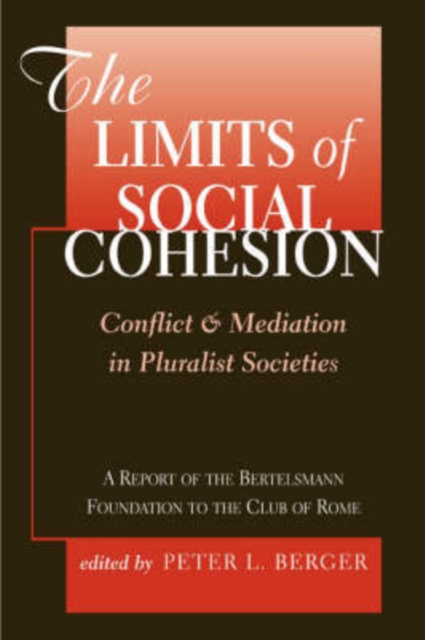
The Limits Of Social Cohesion : Conflict And Mediation In Pluralist Societies Paperback / softback
by Peter L. Berger
Paperback / softback
Description
Normative conflicts centre on fundamental disagreements over issues of public morality and the identity of a society.
In thinking about normative conflicts on a global scale, two principal questions arise.
First, are there common characteristics of such conflicts worldwide?
Second, which institutions polarize such conflicts and which can serve to mediate them?
This pathbreaking book, edited by renowned sociologist Peter Berger, examines both questions through findings gained from a study of normative conflicts in eleven societies located in different parts of the world and at different levels of economic development.On both points, the findings have proved surprising.
Although there are, of course, normative conflicts peculiar to individual societies, two features emerged as common to most of the societies examined: one concerns disputes over the place of religion in the state and in public life the other is a clash of values between a cultural elite and the broad masses of the population.
Often the two features coincide. For instance, in many countries the elite is the least religious group within the population, and therefore, resentments against the elite are often mobilized under religious banners.On the institutional question, the study started out with a bias toward the institutions of so-called civil society",that is, the institutions that stand between the personal life of individuals and the vast mega-structures of a modern society.
The finding is that the same institutions can either polarize or mediate normative conflicts.
The conclusion suggests one must ask not just what sort of institutions one looks to for social cohesion, but what ideas and values inspire these institutions.Comprising reports from some of the leading scholars dealing with normative conflict, this book is an important contribution to understanding the cultural fault lines that threaten social cohesion.
Information
-
Less than 10 available - usually despatched within 24 hours
- Format:Paperback / softback
- Pages:416 pages
- Publisher:Taylor & Francis Inc
- Publication Date:14/05/1999
- Category:
- ISBN:9780813367194
Other Formats
- Hardback from £160.00
- PDF from £42.92
- EPUB from £42.92
Information
-
Less than 10 available - usually despatched within 24 hours
- Format:Paperback / softback
- Pages:416 pages
- Publisher:Taylor & Francis Inc
- Publication Date:14/05/1999
- Category:
- ISBN:9780813367194






